Read what our students have to say about their experiences of studying at SELCS and their time spent living and studying abroad as part of their Programmes.
BA Comparative Literature
- Sara Karim
- Studying Comparative Literature over the course of two years has been a thrilling adventure! I have been able to explore world literature and literature from many cultures! My chosen specialism in the German language has enabled me to thrive in modules that range from Modern German Literature to Romanticism, the German Enlightenment and even the New German Cinema which I especially enjoyed! This degree enables me to share my two passions – my lifelong passion for literature and my evolving passion for languages! I am looking forward to pursuing my year abroad in Germany for my upcoming third year at Universität Heidelberg. Comparative Literature allows me to pursue many opportunities and I am honoured to read such amazing texts from across different time periods, cultures and languages!
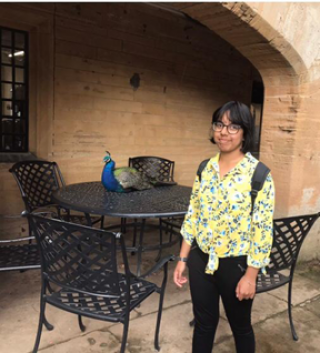
BA Language and Culture
- Anastasia Allen Kormylo
- "The range of languages I was able to pick from inspired me to study at UCL. At that time I hadn't properly considered the teaching staff, the location, the library facilities, the levels of support, and so they were happy surprises that inspired me in retrospect!
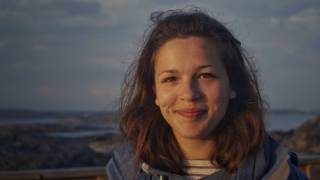
"BA Language and Culture is a really interesting and varied course that gives you the chance to study three languages rather than the usual two of Modern Languages. In the first year you usually study two languages at once: two post A-level (or equivalent) or one with the option of picking up an ab-initio language of choice. In the second year you can drop one of those two and pick up a new language and, at the end of that year, the language(s) you've spent two years studying will be the country/countries you spend your year abroad in. The language courses themselves will only take up half the modules, the rest normally come from SELCS and are culture based. Whilst you study languages, the programme is much more about culture and using language as a route into studying culture.
Skills for life and a career
"I learned so much about how language and culture intertwine and this knowledge is now so inextricably part of the way I view the world. The highlights of the programme were definitely my year abroad and my dissertation! Even though I studied Ukrainian entirely from scratch, I got to live in Ukraine by myself for a whole year which, although scary at times, was enlightening and something I never would have done otherwise.
"Academically, my language skills improved to the point where I was able to read all of the sources I wanted to in order to write the dissertation that I wanted. The BALC programme is so broad that I basically got to research anything that I wanted (within reason) and that, along with all the academic support, was truly amazing. This environment gave me plenty of space to develop useful skills both personally and academically and to link my time at university with my next degree and, ultimately, my career. When I graduate I'm going to pursue a career in midwifery."
Dutch
French
- Evangeline Henry
- "Originally, I was adamant that I didn't want to go university in London: I'd lived there for seventeen years already and I wanted to try a new city. Prompted by my parents and teachers, I reluctantly went to the UCL Open Day. Perhaps it was because it was close to home and perhaps it was because the classrooms reminded me of my school's, whatever it was, I quickly got a good feeling from UCL. Initial impressions matter - especially when choosing where you'll spend the next four years of your life.
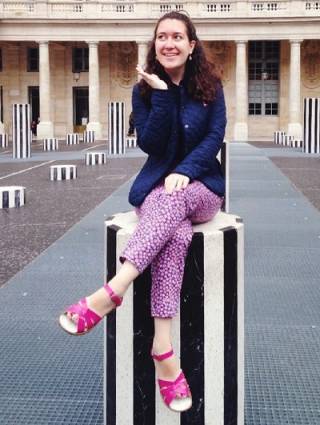
I loved the breadth of UCL's French course: the first year was a good chance to try and taste everything and I had classes in literature, film and history which allowed me to see what I could like to study in the later years. I chose to mostly study modern literature and greatly enjoyed reading a range of francophone literatures, whether from France, Algeria or Haiti. In my final year, I took a module on Tintin which was a wonderful chance to mix my love of French literature with children's literature. UCL's ELCS modules meant I could explore literatures of other languages and cultures in translation which complemented the Francophone side of my degree and it was fun to read books I otherwise would not have known.
The year abroad was, of course, the highlight of my degree. I went to university, before working as a translator for an influencer marketing agency. The opportunity to work abroad provided me with invaluable experience for my CV. The work placement allowed me to throw myself into the French language, working with it intricately on a daily basis, greatly improving my linguistic capabilities and preparing me for the language work in final year as there was a focus on translation. My internship not only improved my language, but also gave me the chance to explore my creativity and discover a new industry: learning marketing on the job was an excellent experience. While I was unsure of what I was doing initially, I quickly learned how to be resourceful and innovative which will benefit me hugely in future. Living in Paris meant that I could explore the rest of France very easily which I did most weekends; the fact that my friends were living in other cities and towns made that a lot easier and having UCL friends abroad made living in a foreign country a little less daunting. I loved the diversity of France as every place was different and had its own feel or sense of magic. For the year abroad assessment, I wrote a four-thousand-word essay in French on Young Adult fiction in France. I greatly appreciated the chance to research a more unusual topic and write about it in my favourite language.
Studying French at UCL taught me a lot more than just French and has given me a lot more than French skills because life is not learnt, contrary to what I thought before starting, from a textbook. It taught me resilience, determination, how to adjust quickly to new situations, what to do when things go wrong and how to celebrate when they go right. It has given me a renewed love for London, fantastic friends, a passion for figure skating and the confidence to learn and discover anything and everything I may want to.
Choosing to study at UCL was probably one of the best decisions I made, especially because I decided to do a Masters here as well. My good feeling I got from the campus was clearly right; UCL is a pretty good place to spend five years."
- Katy Highet
"I felt that the most important part of a degree for me would be that I enjoyed it, and I can honestly say that the programme has not disappointed me. It has introduced me to things I had never considered before, it has changed my ideas on political and philosophical issues, and has helped me realise exactly what I like doing, and what I picture myself doing. With regards to academic staff, I have never met people who are so interested and so enthusiastic about their fields of study. It's really encouraging."
German
- Student Testimonial
"I chose German mostly for the variety of areas of study that it encapsulates. It offers a bit of everything; literature, culture, linguistics, film, history, and politics. I feel that it is giving me a good grounding for later life and the fact that I'm becoming proficient in a second language is an added bonus."
Italian
Scandinavian Studies
- Alicja Kielpinska
- "In high school, I fell in love with the Swedish language. Although it sounds cliché it was love at first sight. Through the self-study of the language, I grew more and more interested in the Nordic region and decided to study Scandinavian Studies. Since this programme is not really popular my choices were limited to just a few universities. When I got an offer from UCL, I didn’t know anything about the university, apart from the fact that it’s in London. However, I clearly remember scanning UCL's website for modules and feeling so excited about what's to come. I think I just knew it was the right choice. Now that I have been a part of the UCL’s and London’s community for 3 years, I wouldn’t change my university experience at UCL for anything else.
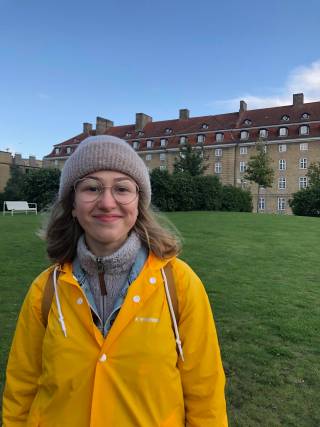
What I love about the Scandinavian Studies Department at UCL is that it is really small. Instead of auditoriums filled with students, you meet in small, private groups and get to know everybody who work or studies at the department. But despite the size, the department is also very diverse. Every single person whom I have met here is truly inspiring because fuelled by a different passion but the same interest for the Nordic region. This diversity also makes for engaging and insightful modules. During the first year, I had a bunch of compulsory modules, each from a different field. Because of the multitude of perspectives covered in those modules I was not only able to build a deeper understanding of the Nordic region but also see what it is about the degree that actually interests me, namely, languages. Knowing that I decided to, along with modules in literature, history, translation and Swedish, take Finnish during the second year. This time I had no previous knowledge of the language and very limited knowledge of the country. All I had was a desire to try a new language. During the whole year, I was the only student in the group. For some, it might have been a nightmare, however for me, it was an incredible opportunity because all of the teacher's attention was on me. There was plenty of time to ask questions, focus on stuff that was difficult or actually use the language. Finnish was definitely the highlight of my second year and a module I recommend to any brave languages lovers.
Despite the always-changing pandemic situation I managed to come to Sweden for my year abroad. Academically, I decided to really focus on languages this year because studying Nordic languages here in Uppsala seemed like the best combination of both exploring my interest in the field and advancing languages skills. I also managed to add Finnish to the mix. All of my classes are in Swedish (some also in Danish and Norwegian) and it is a rewarding feeling to know that after studying the language for only two years I can study in it at a university level along with native speakers.
The year abroad, even in the current situation, is truly a breath of fresh air during the studies. It has challenged me yet again to start from scratch, meet new people, get to know a completely different student life to that I am used to at UCL. However, the almost whole year of not being in London makes me miss this city, so I am looking forward to my final year.
When I think of the time I have spent at UCL so far I see huge growth. I appreciate that as part of my degree I was offered the opportunity to explore so many academic perspectives of approaching the Nordic region and the freedom to choose things that interest me and drop those which are of less interest. Another but equally important thing for me is the university environment where my ways of thinking are constantly challenged and I am surrounded by people who are equally excited as I am about understanding the world better."
- Student Testimonial 1
"I love studying in the Scandinavian Department at UCL because it is so tight-knit, and we can help and support each other in seminars. It means support is always just round the corner." - BA Scandinavian Studies student
- Student Testimonial 2
"It is so much fun learning Old Norse as well as Norwegian, from scratch. It provides me with invaluable life skills and opens many doors such as moving to any part of Scandinavia when I am older. It makes me excited for the future!" - BA Scandinavian Studies student
Spanish, Portuguese and Latin American Studies
- Charlie Dart, BA Spanish with Management
- During the Post-Offer Open Day, I was inspired by the intellectual diversity across SELCS; tutors were engaging and open to sharing research. In my degree, I have thoroughly enjoyed learning from such work which has further influenced my interest in the Spanish diaspora. In management studies, I gain practical skills in economics, accounting and digital strategy: helpful in applications for internships!
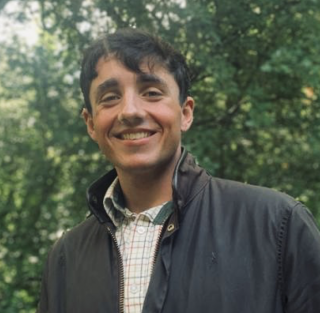
Growing up in the country, the prospect of moving to London was daunting, but I appreciated the support from UCL staff when settling in. During my first weekend in London, I have fond memories of being confronted for standing on the wrong side of the tube escalator as I tried to download my new Citymapper app! But ultimately, it has been my course-mates with whom I have grown close. Sometimes you don’t know what lies ahead, but you have to trust the skills you’ve learned, the people you’ve met, and your gut instinct to guide you there. Strap on your head torch and get ready to go!
EISPS student taking language modules in SELCS
- Liliana Nentcheva (Italian and Spanish)
- "I chose to study at UCL after falling in love with London. I thought that there was no other university in the city, let alone the rest of the UK, which captured its vibrant, multi-cultural and dynamic atmosphere as well as UCL does. UCL is always buzzing with life, always full of things to do, and that was the main reason I wanted to study here.
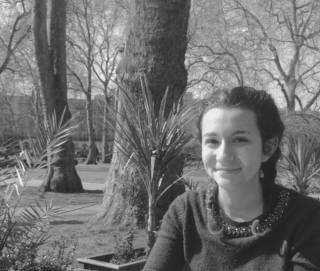
"My Programme is a multi-disciplinary degree which gives an overview of European politics, international relations, history, philosophy and economics in the first year, any of which you can then go on to specialise in, in subsequent years. You can also choose to take various languages in combination with ESPS - I study Italian and Spanish.
Developing skills for my career
"My favourite part of my Programme has been taking up ab initio Italian. I had not studied a language in this way since I was a child and the conscious study of the patterns in grammar and the structures in language taught me a lot, not only about the other foreign languages I speak, but also about English.
"I hope that the humanities element of my course will help me to develop my analytical capabilities, to construct arguments and to evaluate information critically. When it comes to languages, I think the most useful skill I have learnt is perseverance, and this is something which will aid me throughout my life, not just in my career.
"Learning a language can be extremely unrewarding - there are millions of people around the globe, many younger than you, some of who have only a very basic level of education, but who can do exactly what you do, much better than you, without even having to think about it. Learning languages is not about the end product, for you can never claim to know a language completely; it's about how you get there, and I think that this is where the beauty of the subject lies.
A rewarding challenge
"Studying ESPS is no small feat to undertake; it involves studying a lot of different subjects, all simultaneously, which can sometimes seem quite daunting. At the same time however, it is also a Programme of which you can never get bored and which can be tailored very tightly to fit your interests, whether they be linguistic, scientific or humanitarian.
"For me, my degree at UCL has been about much more than what I have been taught; it has been about how I have been inspired. Learning languages at London's global university is not just memorising vocabulary and filling out comprehension exercises; it is about submerging yourself in a foreign culture, taking an interest in its literature, reading about its history, thinking about what you say and how you say it and constantly being excited by what you study.
Inspiring study
"UCL is Unparalleled, dynamic, captivating, thriving, and finally I'd like to use the untranslatable Spanish word 'duende', which is used to denote something which has soul and inspires feelings of awe, like artwork which deeply moves the viewer."
 Close
Close

